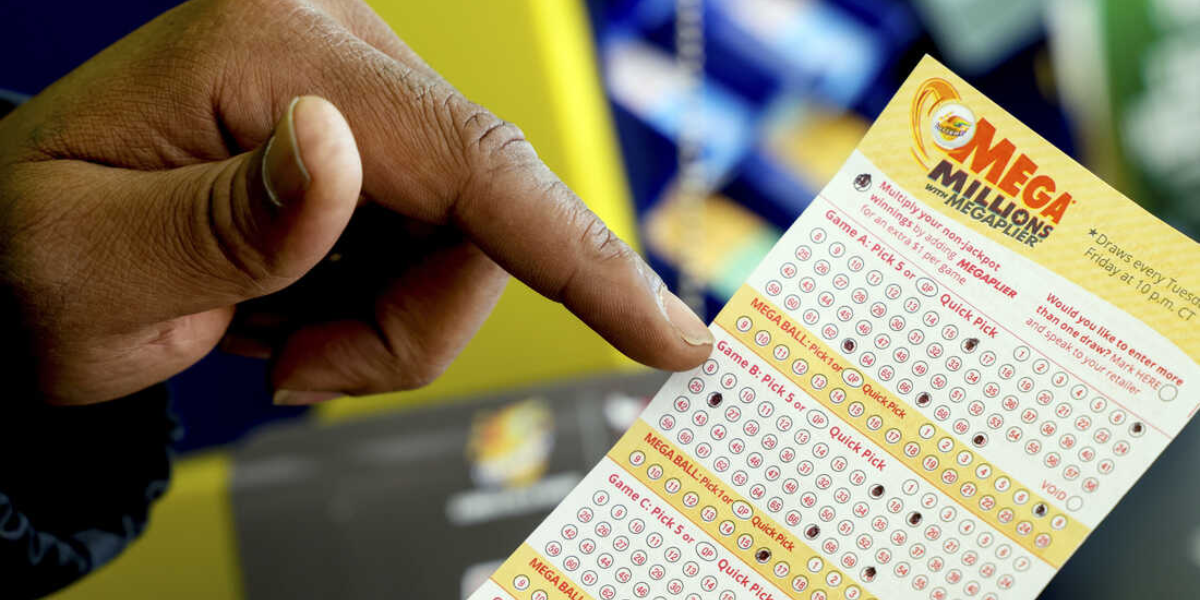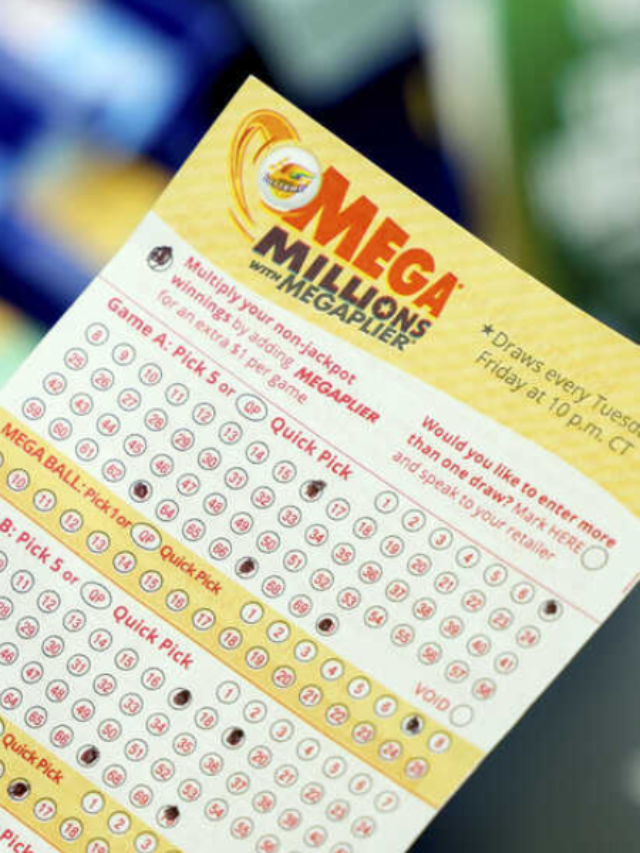What are the 3/29/24 winning Mega Millions numbers? Mega Millions winning numbers for Friday, March 29, 2024. Find your tickets
The Mega Millions lottery jackpot was an estimated $20 million with a cash option of $9.5 million for Friday night’s drawing, according to the Mega Millions website.
The jackpot was last won on March 26 when a lottery player in New Jersey won $1.128 billion – the fifth largest Mega Millions ever.
Meanwhile, the Powerball jackpot is at $935 million for Saturday’s drawing with a cash option of $452.3 million, according to the Powerball website.
11 – 30 – 33 – 38 – 60 and Megaball 16
Megaplier was 4x
Looking for an edge? These Mega Millions numbers are drawn the most
When is the next Mega Millions drawing?
Mega Millions drawings are held every Tuesday and Friday at 11 p.m. More: $1.35 billion Mega Millions winner sues mother of his child for disclosing jackpot win
What are my odds of winning the lottery?
The odds of winning the Mega Millions jackpot are 302,575,350-to-1. The odds of matching all five white balls are 12,607,306-to-1.
What is the deadline for buying Mega Millions tickets?
The deadline for purchasing a Mega Millions ticket varies by state so don’t wait until the last minute. It can be 15 minutes to an hour or more before the actual drawing. For some third-party lottery apps, the deadline can be closer to two hours before the drawing. For example, Jackpocket in New Jersey has a deadline of 9:15 p.m. for the 11 p.m. ET drawing.
Where can you buy lottery tickets?
Tickets can be purchased in person at gas stations, convenience stores, and grocery stores. Some airport terminals may also sell lottery tickets.
You can also order tickets online through Jackpocket, the official digital lottery courier of the USA TODAY Network, in these U.S. states: Arizona, Arkansas, Colorado, Idaho, Massachusetts, Minnesota, Montana, Nebraska, New Hampshire, New Jersey, New Mexico, New York, Ohio, Oregon, Texas, Washington D.C., and West Virginia.
The Jackpocket app allows you to pick your lottery game and numbers, place your order, see your ticket, and collect your winnings all using your phone or home computer.
Where is the Mega Millions available?
You can play the game in 45 states plus the District of Columbia and the U.S. Virgin Islands. The states not offering Mega Millions are Alabama, Alaska, Hawaii, Nevada and Utah.
How many balls do I need to match for the Mega Millions prize?
You can win $2 for the matching just one – the Mega Ball. Short of the jackpot, you can win up to $1 million for matching all five white balls (except in California). You can check all the prize payouts on the Mega Millions site here.
After taxes, here’s how much the $1.13 billion Mega Millions winner will take home
After months without a grand prize winner, someone in New Jersey beat the odds Tuesday night and won a $1.13 billion Mega Millions jackpot.
It was the game’s fifth largest jackpot ever and was purchased at a wine and liquor store on the Jersey Shore, state lottery officials said. That big winner now has a hefty tax bill waiting for them.
That’s because lottery winnings are treated as income by the federal government and most states, so the jackpots are subject to state and federal income taxes. However, 13 states do not collect additional taxes on residents’ lottery winnings.
How much will the Mega Millions winner get?
When a grand prize winner comes forward, they must first decide whether they want to receive their winnings in a 30-year annuity or receive their winnings in a lump sum of cash. If they pick the annuity, they will eventually receive the entire advertised jackpot for three decades.
Most jackpot winners go with the lump sum, which means they get the “cash value” of that jackpot. For Tuesday’s Mega Millions $1.13 billion jackpot, the cash value was $537.5 million.
Right away, 24% of that cash value is withheld for federal taxes and goes to the IRS, TurboTax explains.
So if the New Jersey Mega Millions winner does select the cash option, $129 million of Tuesday’s estimated prize would be withheld, dropping it to $408.5 million.
But even then, the winner is not off the hook quite yet.
Because the federal government counts lottery winnings as income, getting such a large jackpot would likely move the winner into a higher tax bracket, one in which their income is taxed at 37%. So when the winner next files their taxes, they’ll likely have to give the IRS another 13% of that prize.
In most states, the tax is taken from the prize money before it’s ever given to the winner. Details on when and how much the winner pays differ by state.
Then 13 states don’t tax a person’s lottery winnings, according to the Tax Foundation and USA Mega, an online multi-state lottery resource unaffiliated with the lotteries themselves.
Those states are Alabama, Alaska, California, Florida, Hawaii, Nevada, New Hampshire, South Dakota, Tennessee, Texas, Utah, Washington and Wyoming.
According to estimates from USAMega.com, the winner of the publicized $1.13 billion jackpot would earn $280,885,562, if they take the lump sum option because the ticket was bought in New Jersey – which is among the highest state tax withholding at 8%.
But for example, if the winning ticket had been bought in California, which doesn’t have a state tax on lottery prizes, the net payout would have dropped only to $338,666,812 for the cash option, USAMega.com found.
If the $1.13 billion winner decides to receive their winnings in a 30-year annuity, their average amount each year would be $19,722,646, and would overall get $591,679,380 after 30 years, according to USA Mega.
The initial tax bills aren’t the only reason financial experts warn lottery winners to take it slow — you shouldn’t buy a pricey home without a good idea of recurring taxes and upkeep, for example.
“So by far, the biggest misconception that we hear or read and see is, is that the money seems to be infinite when it certainly is not,” wealth advisor Shean Fletcher previously told the Associated Press, adding that winners should meet with financial advisers, lawyers and certified public accountants to make a plan.


